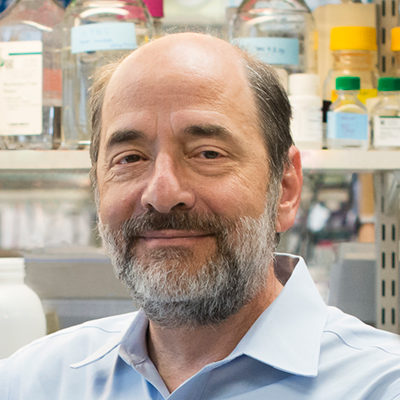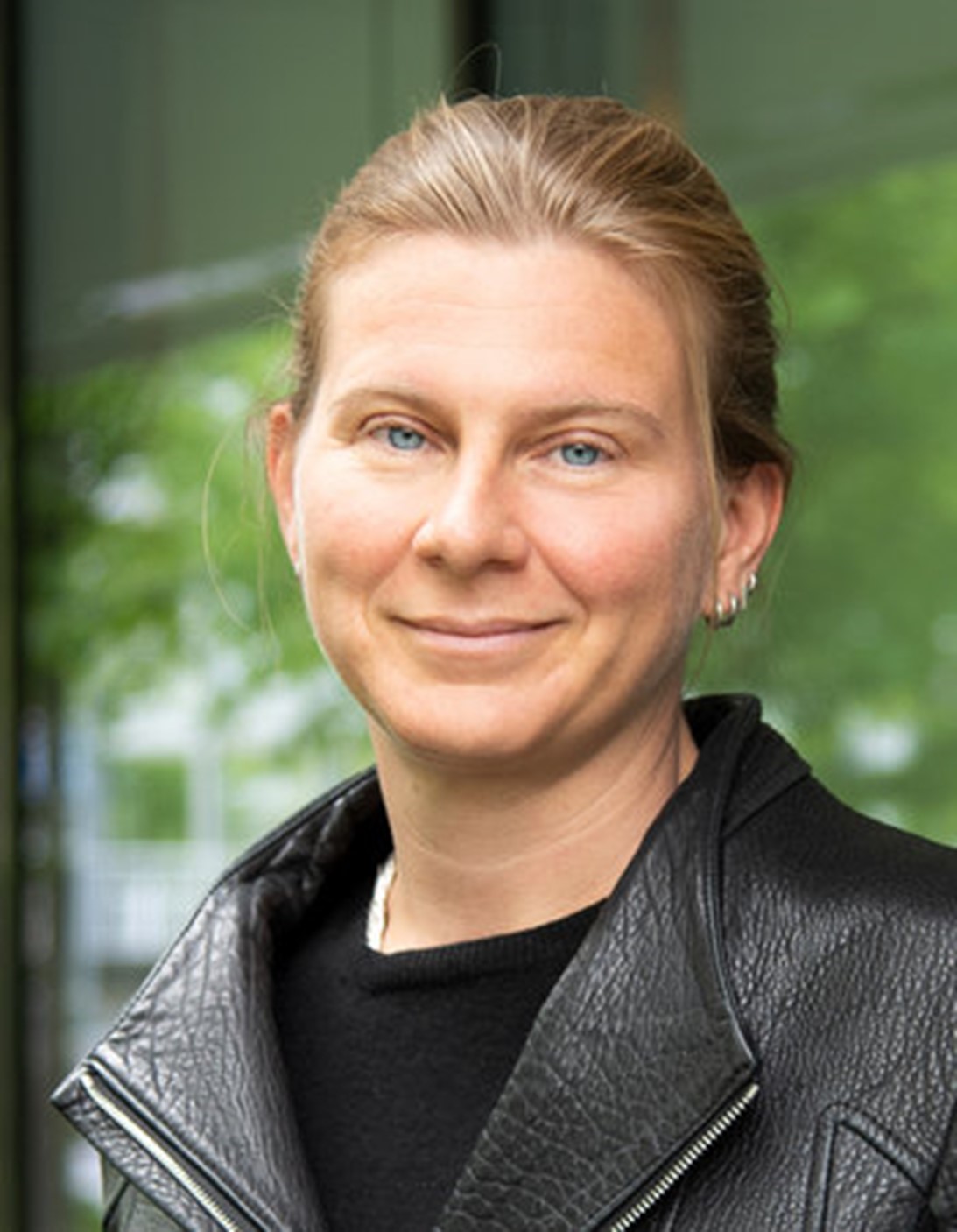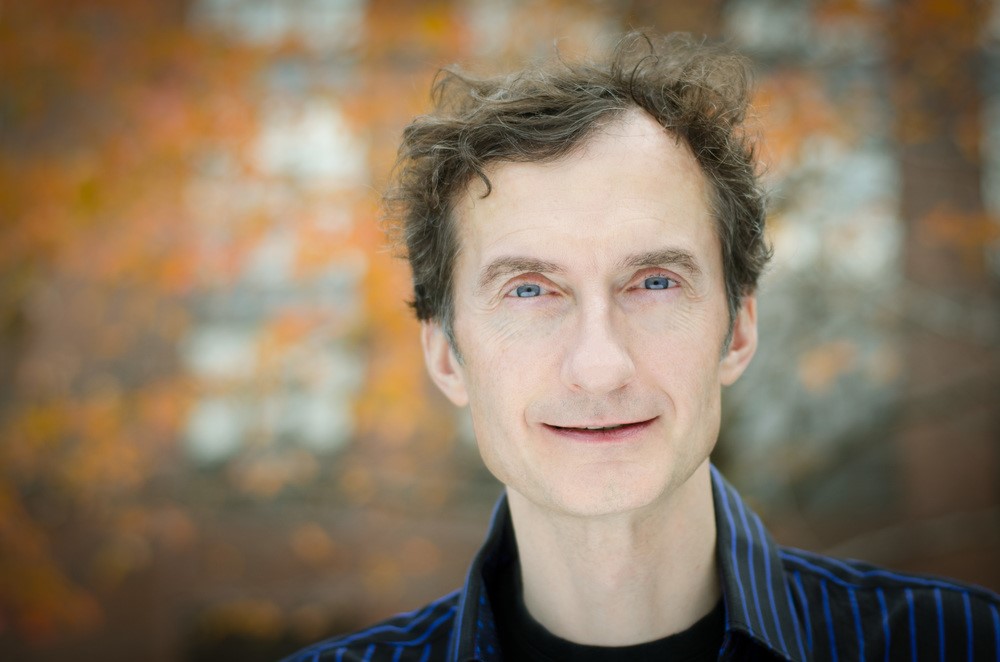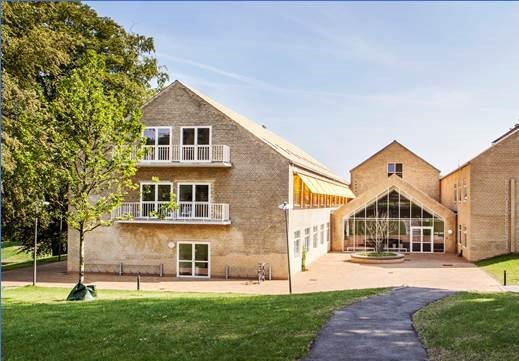Over the course of two days, DANDRITE hosted fantastic seminars from leading international scientists as well as the next generation of researchers, all addressing the central theme: adaptability in the brain. Ranging from molecular mechanisms of gene regulation to circuit-level plasticity, the program reflected the breadth and depth of neuroscience research.
We want to thank the Lundbeck Foundation and the Brain Prize for supporting the symposium. Thank you to the keynote speakers and the participants coming from all around the world.
We hope to see you all again for the DANDRITE Symposium in 2027!

Michael Eldon Greenberg
Nathan Marsh Pusey Professor of Neurobiology at Harvard Medical School, USA.
Michael Greenberg, Brain Prize laureate and a pioneer in the field of gene expression in the brain. Greenberg's work has reshaped our understanding of how neuronal activity influences gene transcription, with profound implications for learning, memory, and neurodevelopmental disorders. In this highly anticipated talk, he will delve into the molecular mechanisms by which experience shapes the brain, offering new insights and sparking discussion on how gene expression drives plasticity and behavior.
Visit the Greenberg Lab's website to learn more.

Anne Schaefer
Professor at Mount Sinai, New York and director of the Department of Neurobiology of Aging at the Max Planck Institute for Biology of Aging.
Anne Schaefer investigates the molecular and cellular mechanisms underlying neuronal longevity and the processes that drive brain aging. Her research seeks to unravel the key factors that initiate and influence aging in the brain, exploring critical questions such as whether the brain dictates aging processes in the rest of the body and how external factors—such as infections or chronic inflammation—contribute to this complex phenomenon. By examining the role of microglia in maintaining neuronal health and their contribution to aging-related changes, Schaefer’s work offers profound insights into the interplay between the brain, the immune system, and systemic health.

Elly Nedivi
William R. (1964) & Linda R. Young Professor of Neuroscience at the Picower Institute for Learning & Memory, Depts. of Brain & Cognitive Sciences, and Biology, Massachusetts Institute of Technology.
Elly Nedivi is an internationally renowned neuroscientist whose research has revolutionized our understanding of structural plasticity in the adult brain. Her pioneering work has uncovered how synaptic connections and dendritic architecture dynamically adapt to experience, providing crucial insights into the mechanisms that support learning, memory, and neural repair. By elucidating the molecular and cellular pathways that mediate synaptic remodeling, Nedivi has significantly advanced the field of neurobiology.

Alexander F. Schier
Professor of Cell Biology and the Director of the Biozentrum University of Basel, Switzerland.
Alex Schier, pioneer in developmental genetics and single-cell analysis. Schier has revolutionized our understanding of gene regulation in the brain at unprecedented resolution. His research explores cutting-edge approaches to dissecting gene expression at the single-cell level, uncovering new layers of complexity in neural development and function.
Attendees will have the opportunity to meet the keynote speakers at exclusive Meet the Keynote Speaker lunches. If you are interested in participating, please indicate your wish on the registration form. Availability is limited and will be allocated on a first-come, first-served basis.
Listed in the order they appear on the programme.
Prizes & Voting (updated)
Thank you to everyone who submitted a poster! Information has been provided for all who brings a poster via email.
Please note a recent update to the poster prize format:
We appreciate your understanding and look forward to your presentations!
Poster board size: height 120 cm and width 100 cm.
For PhD students from Aarhus University
PhD students who present a poster or give a flash talk will receive a documentation of their active participation. The PhD schools of Health and Natural Sciences have agreed to award 1 ECTS point for attending the conference + active participation.
For all other participants
All participants may request a certificate of participation if needed. Please contact asmu@dandrite.au.dk.
The registration fee is 350,00 DKK, and includes admission, meals and coffee breaks during the conference programme. The registration fee is to be paid together with your registration.
Refunding of the registration fee is not possible, but your registration can be transferred to someone else if you are prevented. Contact the conference coordinator if this is needed at asmu@dandrite.au.dk.
Eligibility:
Students, junior researchers and postdocs attending the DANDRITE Symposium can apply. Recipients must submit an abstract and present a research poster at the symposium.
Funding:
Application Process:
Selection & Reimbursement:
Find instructions on how to reach Aarhus University from abroad and domestically: https://conferences.au.dk/getting-to-aarhus-and-aarhus-university
Find instructions on how to get around in Aarhus here: https://conferences.au.dk/getting-around-in-aarhus.
Find hotels in Aarhus here: https://www.visitaarhus.com/aarhus/where-sleep/hotels
All meals and coffee breaks during the conference are included in the registration fee. Please disclose any allergens in your registration, so we can serve a satisfactory alternative if needed.
Find information about wireless network while at Aarhus University here: https://conferences.au.dk/wireless-network.
Please note that a photographer will be present at both days of the conference. To comply with the GDPR, we must inform you that the photos will only be used in AU-related contexts and as PR for the event. Contact the photographer on the day of the event if you do not wish to be photographed.
Aarhus is the second largest city in Denmark and has many cultural and historical experiences to offer. In your registration form, you can sign up for a voucher to visit either ARoS Art Museum or The Old Town free of charge during your stay.
If you plan to stay in Aarhus beyond the conference, you can find relevant tourist information here: https://www.visitaarhus.com/areas-and-cities/aarhus/plan-your-trip

The address is: Høegh-Guldbergs Gade 6B, 8000 Aarhus C.